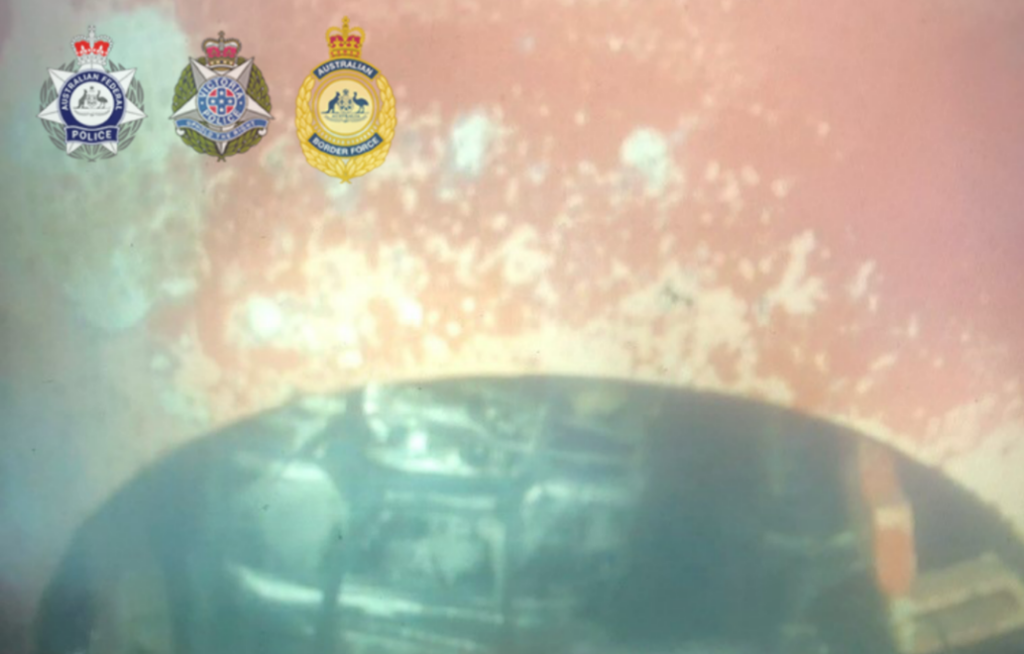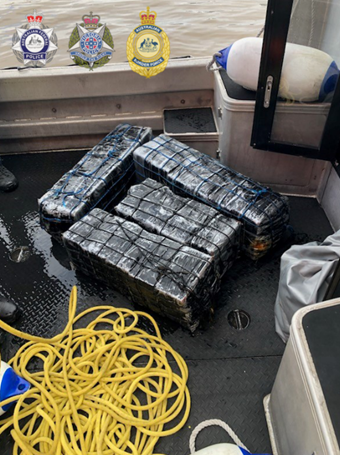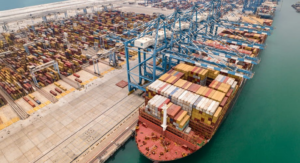
A shipment of cocaine worth $61 million has been found hidden inside the hull of a cargo ship, in an emerging smuggling trend.
The ship arrived at the Port of Melbourne from South America on October 7, with a suspicious attachment identified on its hull below the waterline.
Specialist divers retrieved four packages of cocaine wrapped in plastic from inside the sea chest.
The packages contained about 154kg of cocaine from the ship. This amount of cocaine could have equated to about 77,0000 street deals worth an estimated $61 million, in accordance with the Australian federal police.
Australian Federal Police (AFP) officers seized the drugs, and a suspected tracking device, launching an investigation to identify the source of the cocaine and its intended destination.
This area of the ship is not accessible to general crew on the ship.
There have been a number of attempts to conceal border-controlled drugs in the hull of cargo ships in recent months.
About 200kg of cocaine was seized from the sea chest of another vessel docked in the Port of Melbourne in August.
Hilda Sirec, AFP Assistant Commissioner, said there is a rising trend of transnational serious organised crime groups attempting to smuggle illicit drugs into Australia by hiding them underneath the waterline of cargo ships.
“My message to organised crime is that your modus operandi is busted. We know when illicit drugs are coming in and where they are stored,” Sirec said in a statement.
“In the past two years alone, a number of high-profile alleged offenders have been deported or extradited to Australia to face serious illicit drug trafficking charges. Some of these offenders are facing sentences of life imprisonment.
“We also want to warn the divers, who are hired by criminal syndicates, to retrieve illicit drugs in the hulls of ships.
“They are also placing themselves in serious danger because retrieval often involves diving through dark, busy shipping channels with limited safety equipment.”
Clint Sims, Australian Border Force Commander, said cocaine shipments were being seized at Australia’s border at record levels.
“With the deployment of advanced technology such as ROVs, the ABF is well-placed to detect, disrupt and deter those who seek to import harmful drugs into Australia,” Clint Sims said.



